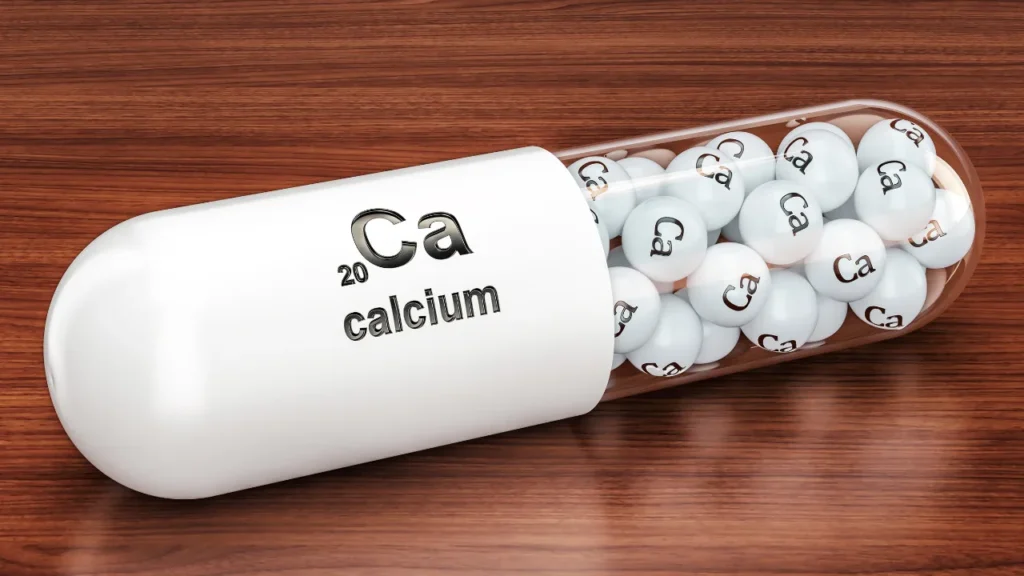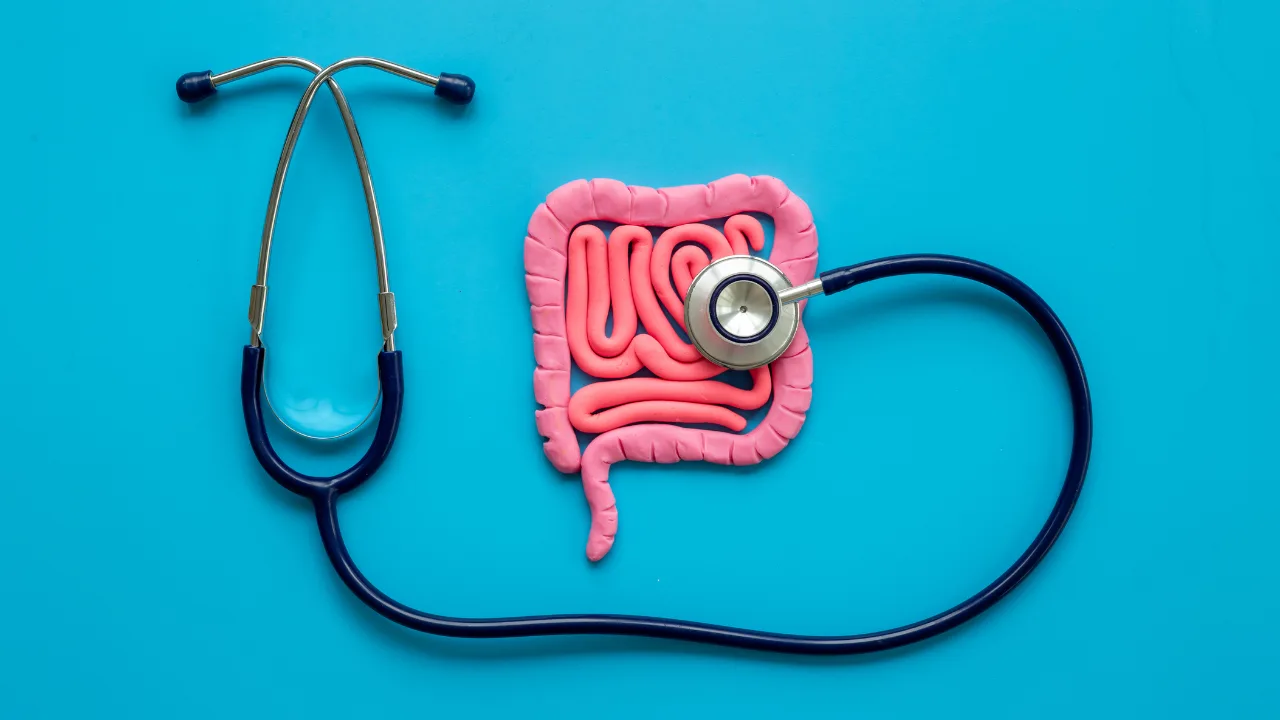Description
Crohn’s disease (CD), which is among the most widespread forms of inflammatory bowel disease (IBD), is characterized by chronic intestinal inflammation, which is one of its key characteristics. Although any region of the digestive system, including the oral cavity and the anus, might be affected by this condition, the colon and small intestine are the most frequently affected. The standard of living for people with CD is substantially impacted by the lifelong disorder, which can cause a variety of incapacitating symptoms and complications.
Each person’s case of Crohn’s disease is unique, but common symptoms include fever, diarrhea, abdominal pain, weight loss, and exhaustion. Extraintestinal symptoms like joint discomfort, eye inflammation, and skin rashes are possible in certain patients. The severity of the symptoms may vary from moderate to extreme, with phases of remission and disease flare-ups interspersed. Relapsing-remitting disease (CD) is characterized by an alternation between symptom-free (remission) and symptom-exacerbating (flare) episodes. Fistulas, abscesses, and strictures are just a few of the consequences that can result from CD’s inflammatory nature.
You May Also Like:
Hypogammaglobulinemia: Description, Causes, and Treatment Protocol
IgA nephropathy / Berger’s disease: Description, Causes, and Treatment Protocol
Crohn’s disease (CD): Description, Causes, and Treatment Protocol is an original (MedNewsPedia) article.
Possible Causes
Although there is no proven cause for Crohn’s disease, numerous conditions are thought to play a role in its onset. The following are those conditions: –
Dysregulated Immune Response: The gastrointestinal tract is the target of the immune system’s mistaken attack in CD, which is an autoimmune illness. The pathophysiology of CD is mostly influenced by abnormal immunological reactions and persistent inflammation.
Genetic Predisposition: There exists a significant hereditary component, with some gene variations boosting vulnerability to CD. Family history is important because people who have a family history of CD are more likely to develop it themselves.
Environmental Triggers: Individuals with a genetic predisposition to CD may be affected by environmental variables like smoking, food, and exposure to specific microorganisms. Dietary practices, especially excessive consumption of saturated fats and refined foods, have been linked to an increased likelihood of CD.

Exacerbating and Mitigating Factors
The symptoms and prognosis of Crohn’s disease (CD), an intricate and protracted inflammatory bowel condition, might vary. The following are crucial exacerbating and mitigating variables that affect the severity and treatment of CD: –
The exacerbating factors include: –
Smoking: Smoking remains a well-established risk indicator for developing CD and can make patients who already have the illness worse. Smoking exacerbates inflammation and reduces the body’s ability to respond to CD therapy.
Stress: Stress on the mind can dramatically increase CD symptoms and cause flare-ups. Stress triggers the body’s inflammatory reaction, which could result in inflammation of the digestive tract.
Diet: Dietary decisions can make CD symptoms worse. Flare-up risk is raised by diets rich in saturated fats, processed foods, and refined sugars. These dietary elements have the potential to worsen gut inflammation and the microbiome’s normal balance.
Medications: Ibuprofen and other nonsteroidal anti-inflammatory medicines (NSAIDs) should not be used since they can exacerbate CD symptoms. NSAIDs may aggravate CD patients’ gut lining, putting them at higher risk for bleeding and ulcers.
The mitigating factors include: –
Smoking Cessation: Patients with CD who smoke are urgently advised to stop. Quitting smoking can improve disease outcomes and lower the chance of flare-ups. Nicotine and other tobacco products have pro-inflammatory properties, which are diminished when smoking is stopped.
Stress Management: Meditation, yoga, relaxation drills, and therapy are all stress-reduction methods that can help regulate CD symptoms and lessen the likelihood of flare-ups. Reducing stress can alter the immune system’s reaction and the generation of stress hormones, which may relieve symptoms.
Diet Modification: Many CD patients may get symptom relief from dietary adjustments like switching to a Specific Carbohydrate Diet (SCD) or low-FODMAP. These diets restrict foods like high-FODMAP meals and complex carbs that might increase symptoms or cause gut inflammation.
Medications: Immunomodulators, biologics, corticosteroids, and aminosalicylates are common CD drugs that help manage inflammation and lessen flare-ups. These drugs treat CD symptoms by calming the gut’s inflammatory response and suppressing the immune system.

Standard Treatment Protocol
Remission, symptom relief, and avoiding complications are all goals of CD treatment. The following are frequently included in typical treatment protocols: –
Medications: These consist of the following: –
Corticosteroids (e.g., prednisone)
Strong anti-inflammatory drugs called corticosteroids are administered to manage severe CD flare-ups. Nevertheless, they are not recommended for long-term usage due to their risk of serious side effects.
Aminosalicylates (e.g., mesalamine)
Usually, mild or moderate CD is treated with these anti-inflammatory medications. They aid in maintaining remission and reducing inflammation. For localized therapy, enemas or rectal suppositories are also available, in addition to oral drugs.
Biologics (e.g., adalimumab, infliximab)
In moderate to advanced CD, biologics work by specifically targeting molecules that contribute to inflammation. When other medicines have not helped, they are frequently taken.
Immunomodulators (e.g., methotrexate, azathioprine)
To lessen inflammation and preserve remission, these drugs dampen the immune system. Usually used in situations where aminosalicylates and corticosteroids are ineffectual or to lessen the requirement for corticosteroids.

Nutritional Support: The following are some of them: –
Enteral Nutrition
When a CD flare-up occurs, especially in children, tube feeding or liquid formulas might be utilized as the primary or supplemental therapy. Enteral nutrition supplies vital nutrients while allowing the irritated intestines to rest.
Total Parenteral Nutrition (TPN)
Feeding with TPN intravenously may be required in extreme circumstances if the gastrointestinal tract is unable to absorb nutrition. Directly into the bloodstream, TPN supplies all necessary nutrients.
Surgery: For a number of causes, including the following, surgery may be necessary for CD: –
Strictureplasty
With no gut tissue being removed, this treatment is used to open up constricted parts of the intestine.
Fistula Repair
Fistulas, which are improper connections between the colon and other organs, might need surgical treatment.
Resection
A section of the intestine could require removal via surgery in situations involving severely clogged or diseased gut.
Abscess Drainage
Surgical drainage may be required when an abscess, i.e., a region of infection arises.
Treatment Options
Various therapeutic choices, including prescription drugs, over-the-counter remedies, dietary supplements, homeopathic treatments, and herbal therapies, might be thought of as complementary treatments or as ways to increase the effectiveness of conventional treatment along with normal protocols. The following are several CD treatment options: –
Prescription Medications: These include the following: –
Antibiotics (e.g., ciprofloxacin, metronidazole)
For the treatment of infections or to reduce inflammation in CD, antibiotics may be administered.
Antidiarrheal Agents (e.g., loperamide)
These drugs can help with CD symptoms like diarrhea control and urgency reduction.
Probiotics
Specific probiotic supplements can provide comfort to some CD sufferers. It is necessary to speak with a healthcare professional before utilizing them because of the variable nature of their efficacy.
Over-the-Counter Formulations: They consist of the following: –
Pain Relievers (e.g., acetaminophen)
Nonsteroidal anti-inflammatory medicines (NSAIDs) can worsen symptoms, making acetaminophen a safe option for alleviating pain in CD patients.
Iron Supplements
It may be required to take iron supplements to treat iron-deficiency anemia, which may result in CD due to decreased nutrient absorption or continuous blood loss.
Nutritional Supplements: These are as follows: –
Vitamin D
Vitamin D, which is important for the immune system and bone health, is often inadequate in CD patients. To correct deficits, supplementation could be advised.
Omega-3 Fatty Acids
Omega-3 fatty acid-rich fish oil supplements might offer anti-inflammatory benefits and enhance general health. They are occasionally employed as a supplement to therapy.

Calcium
Getting enough calcium is crucial, especially for CD patients taking corticosteroids because these drugs might lower bone density.
Natural Remedies: They consist of the following: –
Turmeric (Curcumin)
Curcumin, a component of turmeric with anti-inflammatory effects, is present. Patients with CD may occasionally take turmeric pills to reduce their symptoms.
Slippery Elm
Inflamed mucous membranes inside the digestive tract might react favorably to herbal treatments like slippery elm. They come in a variety of formats, like teas and pills.
Aloe Vera
Aloe vera may assist in reducing digestive tract irritation, according to certain research. To confirm its efficacy, more research is necessary.
Herbal Remedies: These are listed below: –
Marshmallow Root
Mucilage, which is present in marshmallow root, can ease sore tissues in the digestive tract. For stomach discomfort, it can be utilized as a herbal treatment.
Wormwood
Some CD sufferers use wormwood to treat symptoms including bloating and stomach pain. Further research is necessary, nevertheless, to determine its effectiveness and safety.
Boswellia
Some CD sufferers may think about using Boswellia supplements, which are made using the resin found in the Boswellia tree and are thought to lower inflammation.
However, it is important to remember that each person will respond differently to complementary therapies, including herbal treatments and natural cures. Patients with CD should get advice from a healthcare professional before beginning a new therapy or supplement to guarantee safety and determine whether it will interact with their current drugs and treatment plan. Additionally, constant interaction with a medical team is necessary for treating Crohn’s disease and enhancing the therapeutic strategy.

Conclusion
Crohn’s disease (CD) is a complex, chronic inflammatory condition that significantly impacts the digestive system and overall quality of life. While its exact cause remains uncertain, a combination of genetic predisposition, immune dysregulation, and environmental factors contribute to its development. Effective management of CD requires a multifaceted approach, including pharmacological treatments, dietary adjustments, and, in some cases, surgical intervention. Complementary therapies such as probiotics, nutritional supplements, and natural remedies may offer additional relief but should always be pursued under medical supervision. By tailoring treatments to individual needs and maintaining close communication with healthcare providers, individuals with Crohn’s disease can achieve improved symptom control, longer remission periods, and enhanced well-being.
Additional resources for further reference
https://www.ncbi.nlm.nih.gov/books/NBK436021
https://www.sciencedirect.com/science/article/abs/pii/S0011502917301530
https://europepmc.org/article/med/19434866
https://academic.oup.com/ibdjournal/article/8/4/244/4718372
Important Note: The information contained in this article is for general informational purposes only, and should not be construed as health or medical advice, nor is it intended to diagnose, prevent, treat, or cure any disease or health condition. Before embarking on any diet, fitness regimen, or program of nutritional supplementation, it is advisable to consult your healthcare professional in order to determine its safety and probable efficacy in terms of your individual state of health.
Regarding Nutritional Supplements Or Other Non-Prescription Health Products: If any nutritional supplements or other non-prescription health products are mentioned in the foregoing article, any claims or statements made about them have not been evaluated by the U.S. Food and Drug Administration, and such nutritional supplements or other health products are not intended to diagnose, treat, cure, or prevent any disease.


